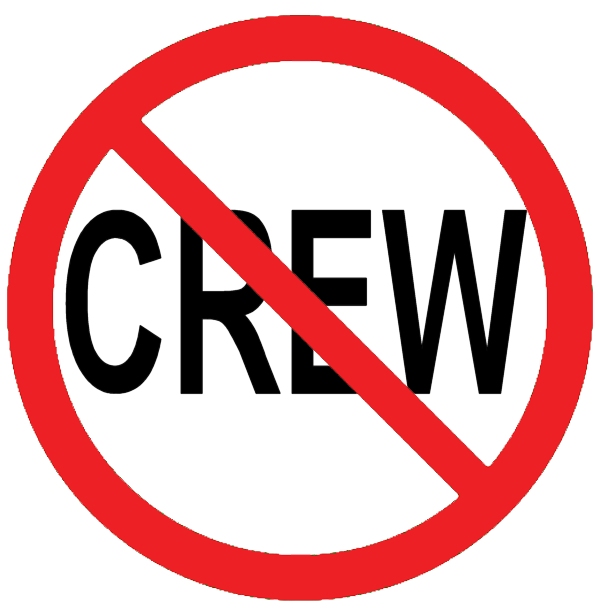FAQ - Do you ever take crew aboard?
/We know lots of cruisers who like having extra crew aboard, especially when they're facing a long trip ahead. For sure, having an extra mate to stand watches and help with chores during an ocean passage can be a great benefit. We know of several boats that have had excellent experiences taking on crew in local ports. We also know several that have had nightmare crews and regretted taking crew aboard.

We have only taken on crew once. It was a long passage from Ecuador to Chile via the Galapagos and Easter Island. John is a good friend and we couldn't have asked for an easier crew mate to get along with nor a more knowledgeable or helpful sailor. It was a long passage, however, with lots of days at sea and after a particularly big storm, he was ready to call it quits when we arrived in Easter Island. He was very honest about it. “This is your life and for me, it's just a one-time adventure and I'm ready to go home.” He'd had enough.
Talking with other cruisers and from our limited experience, here's some basics we'd suggest if you are considering taking on crew…
- Finding crew.Consider asking friends whom you know are good sailors and whom you trust to accompany you on the passage. Check out bulletin boards in local marinas … there are always ads for crew seeking passages or experience. If you're “interviewing” on line, be sure to speak to the person in advance, get a feel for them. Obviously, in person interviews are best. Get references from other captains. Are they capable and trustworthy? Remember if you're sharing your “home” and watches, you've got to be able to trust the crew, so you can sleep. There are lots of on-line crew/passage finding websites. Here's a few …crewseekers.net, www.cruisersforum.com/forum/f30, floatplan.com
- Personalities in sync.The best qualified person may not mesh with you and the personalities of the resident crew. A very experienced crew person may want to take over and feel it beneath him/her to do menial chores, while a more inexperienced crew member may be excited to pitch in and learn as much as possible. Weighing the pros and cons of how the new crew member will fit in with life aboard is crucial to harmony at sea.
- Set house rules in advance.No smoking aboard. No drinking alcohol during passages. No friends with benefits aboard, etc. Whatever your rules, state them in advance and make sure they're understood.
- Outline crew financial obligations.Crew usually pay for some boat expenses like their share of food, sometimes part of the fuel, etc. plus their own personal expenses as well as immigration entry fees at new ports. Who pays to get them to the next port or back home? Make sure they understand the costs involved and, more importantly, have enough money to pay.
- Delineate your expectations regarding duties.Do you expect them to stand night watches? What are their responsibilities regarding maintenance, repairs, cooking, sharing cleaning chores, etc. Be specific.
- Be aware of the immigration/maritime laws of countries you plan to visit. Taking on and letting off crew can be tricky in some countries. Some require that a bond be posted in case a crew member jumps ship. The captain is required to pay their airfare back to their country of citizenship. We know a captain who paid a hefty fare to repatriate a Russian crew member from French Polynesia to Moscow. The French weren't interested in having an indigent Russian hanging out in their paradise.
That said, the biggest problem with crew for us is that we lose our privacy. We don't usually bother to close the head doors when we go to the bathroom. We don't necessarily get dressed when we head into the galley for morning coffee. We aren't beyond skinny-dipping in tiny, secluded anchorages. I reckon we enjoy our intimacy, personal freedoms, and “us” too much to share with others for any length of time.
Have you ever taken on crew? What were your criteria and how did it turn out?

